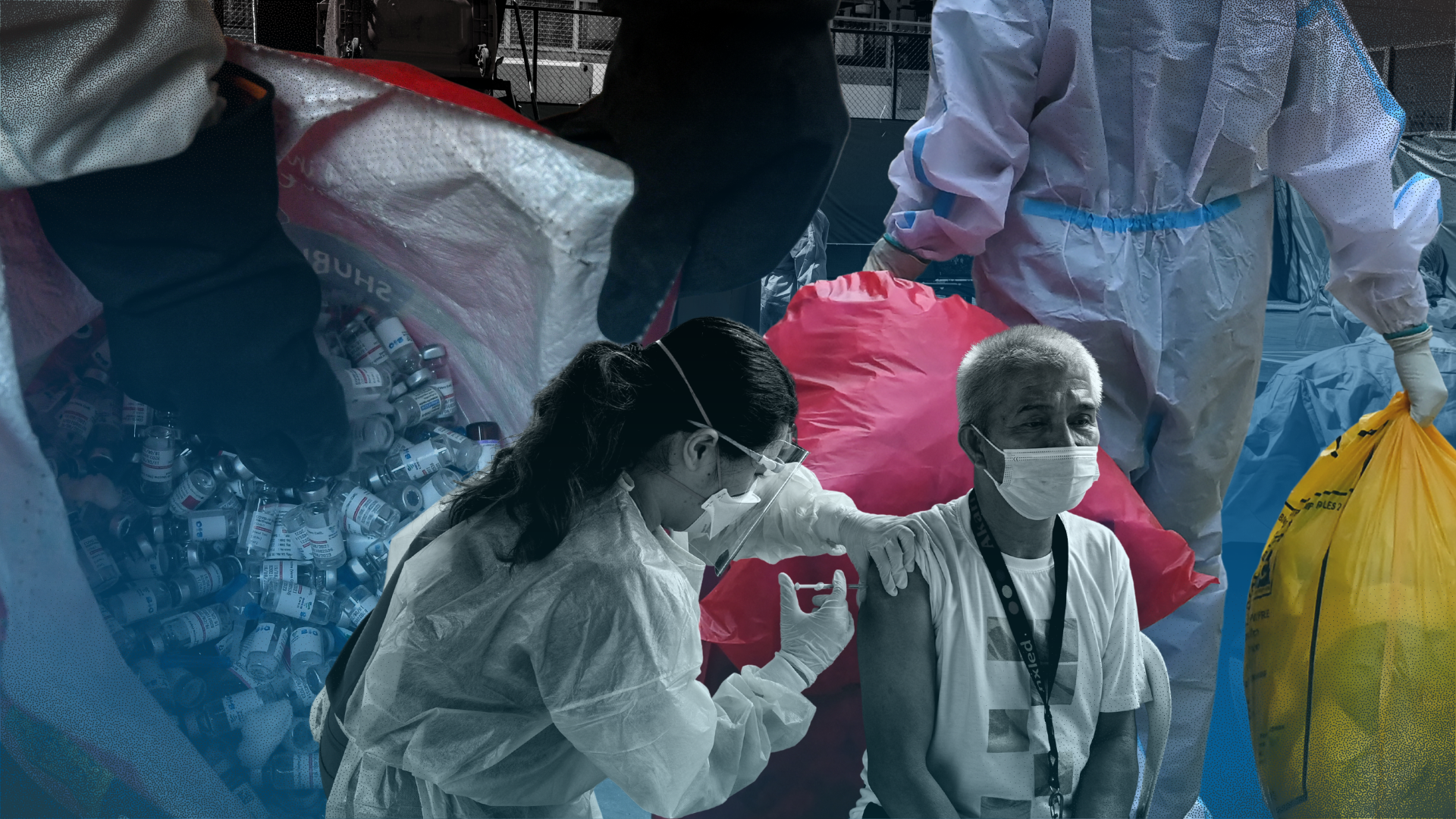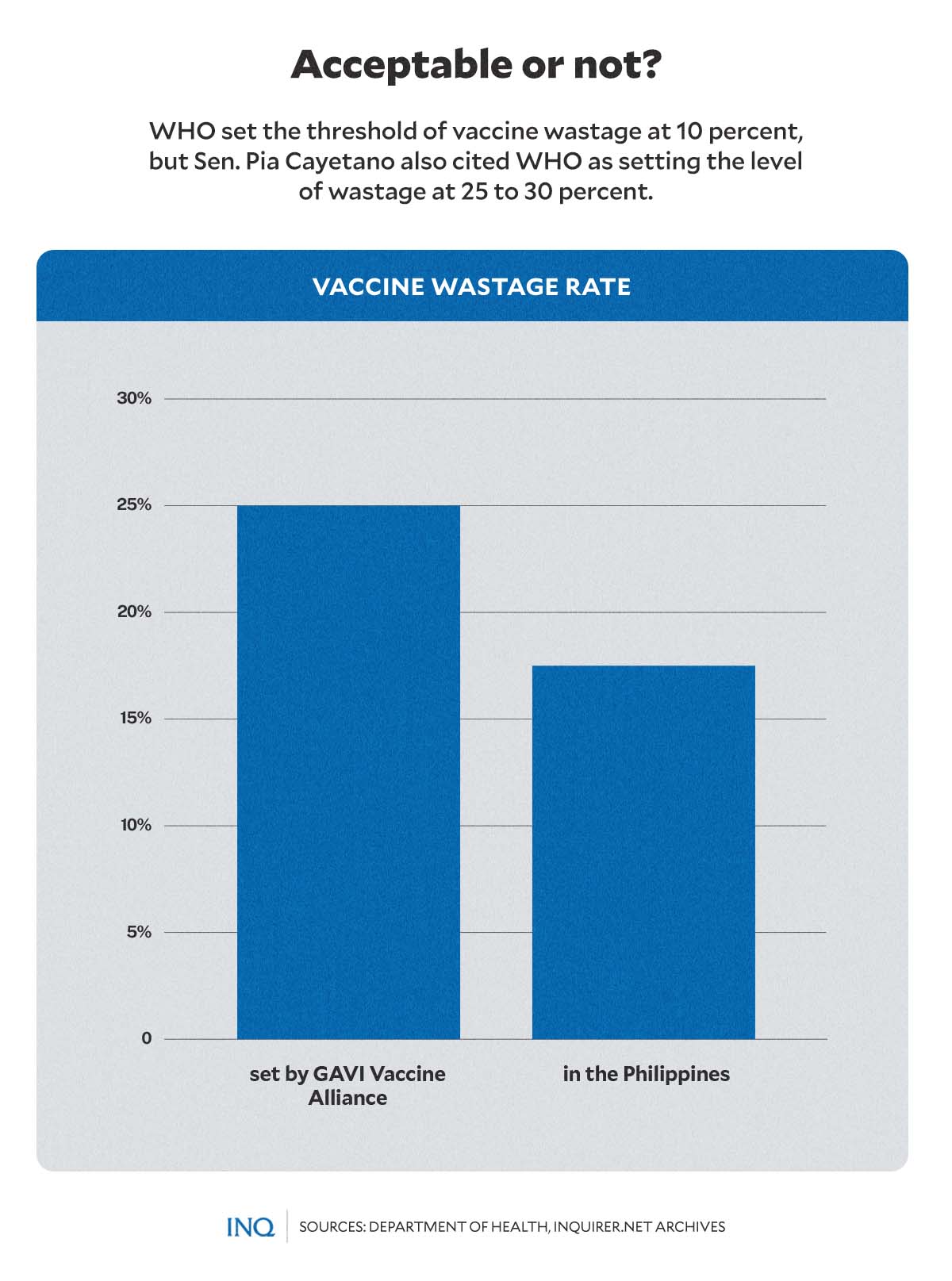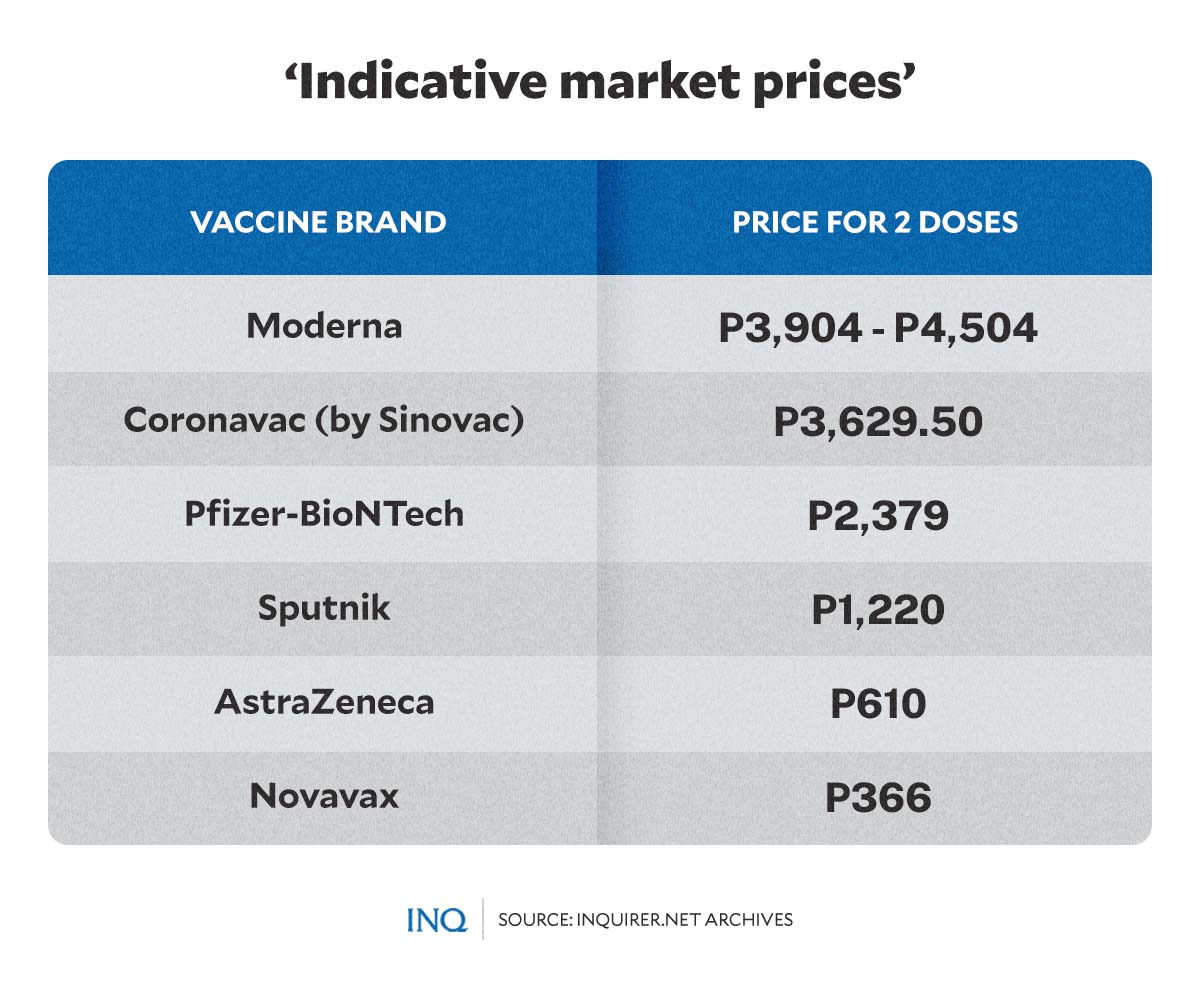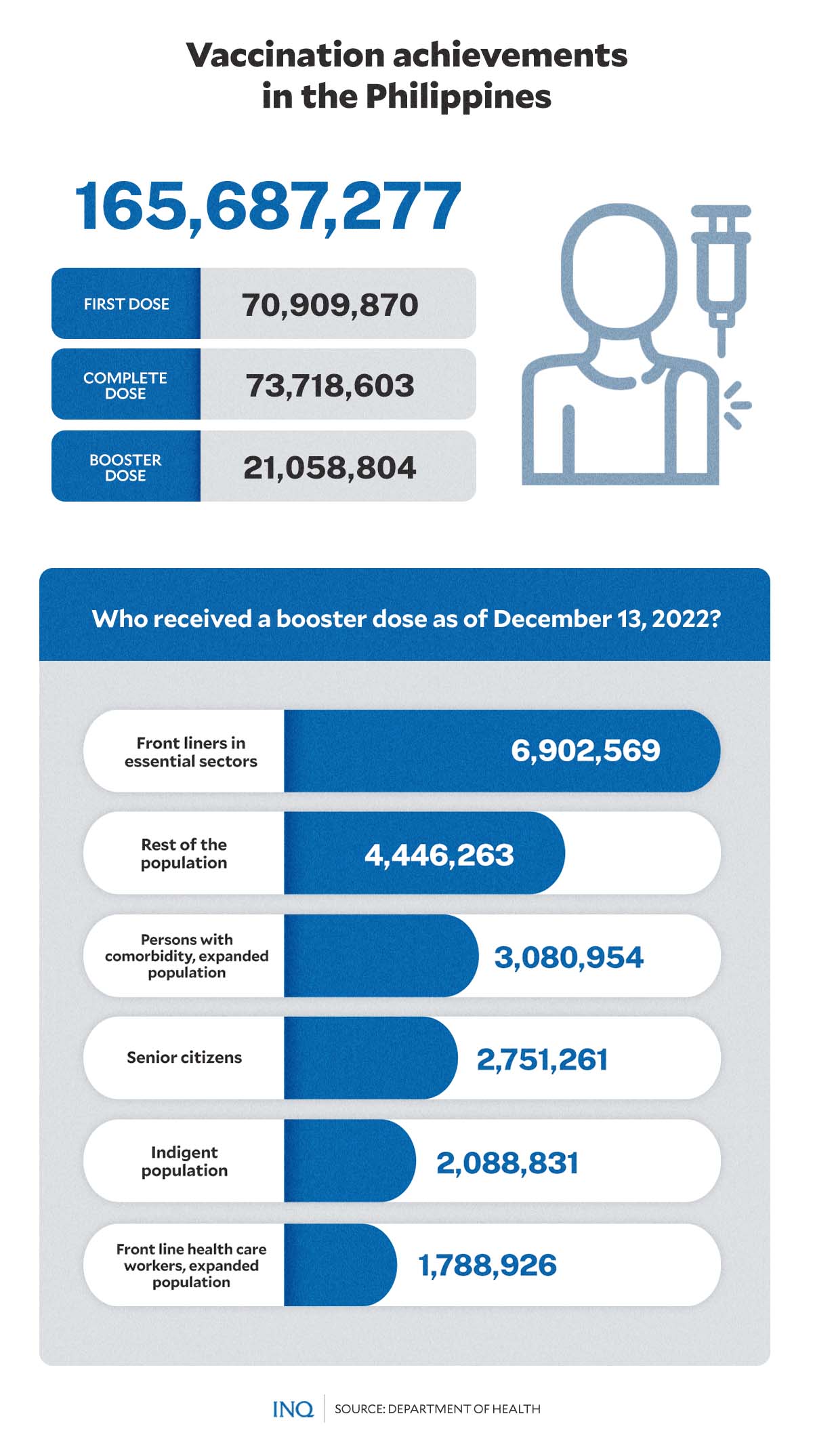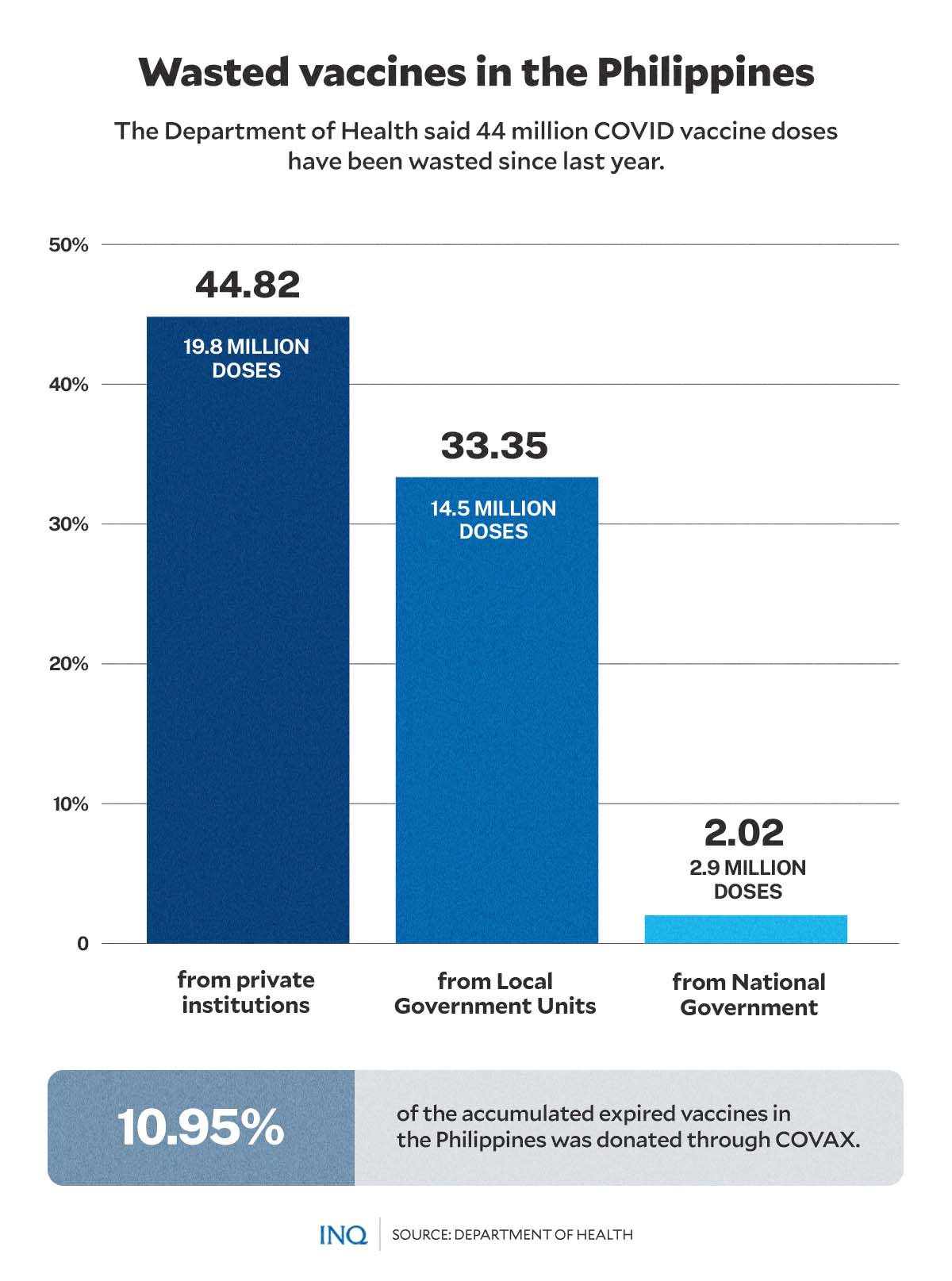Bid to lift secrecy veils on COVID vaccine costs starts as 44M doses are wasted
MANILA, Philippines—As revealed by the Department of Health (DOH), 44 million COVID vaccine doses have been wasted since last year, but this is not the only problem hounding the campaign to vaccinate Filipinos against SARS-CoV-2.
According to data from the DOH, vaccine wastage in the Philippines is 17.5 percent, higher than the 10 percent threshold that was initially set by the World Health Organization.
According to Sen. Pia Cayetano, “the WHO specifically said that because of the evolving nature of the pandemic, [the level of wastage that is acceptable] is around 25 to 30 percent.”
But while 17.5 percent is still below the 25 percent threshold set by GAVI, which is a vaccine alliance, Sen. Risa Hontiveros had already expressed concern over how billions of pesos worth of government resources were wasted.
Looking back, it was in August when Hontiveros stressed that while she understood that there is really a “margin of error” because there are vaccines that could not be used for some reasons, “it seems that we’re throwing away money and vaccines.”
Article continues after this advertisementRELATED STORY: Hontiveros seeks Senate probe into P13-B vaccine wastage
But concerns grew larger when Sen. Francis Escudero expressed disappointment at finding out there’s no Commission on Audit (COA) report detailing the government’s procurement of vaccines in late 2020 to early 2021, considered as peaks of the COVID pandemic.
Article continues after this advertisement“COA is not a general services office that is limited to just checking if the delivery was correct and if the supply was utilized by the government. That’s part of it, but the more important component was if the money was spent legally,” he said.
As explained by Sen. Sonny Angara, COA was only able to audit the inventory of procured doses and the use of these vaccines because the contracts between the government and the manufacturers had non-disclosure agreements (NDAs).
READ: COA ‘willing to use’ subpoena powers to audit purchase of COVID-19 vaccines
COA chairperson Gamaliel Cordoba said while the DOH had asked the agency to audit the procurement of vaccines, then Health Secretary Francisco Duque III stated that the DOH will not be able to provide the documents because of the NDAs.
This prompted the Senate Blue Ribbon Committee to initiate a motu proprio investigation on the procurement of vaccines, which Escudero said had cost the government some P300 billion.
READ: Senate inquiry into wasted vaccines set
According to Sen. Francis Tolentino, chairperson of the blue ribbon committee, the investigation would likewise look into the high vaccine wastage rate in the Philippines, stressing that the vaccine procurement is “no ordinary.”
He told radio station dzBB last Dec. 5 that “public interest is involved here—the government and the people’s money […] so it should really be audited,” pointing out that Filipinos have the right to know where and how the COVID vaccines were used.
Tolentino said the committee would look “into the non-disclosure by and/or refusal of the DOH to release the details of the vaccine procurement contracts on the pretext of a supposedly existing NDA.”
But the DOH had asserted that it was actually the one that “proactively sought the support of COA to conduct the special audit, as this is part of our commitments specified in our loan agreements with WB (World Bank) and ADB (Asian Development Bank).”
As Cordoba stated, WB and the ADB had been asking for a special audit on the loans they had granted to the government of the Philippines for the procurement of COVID vaccines.
Senate to get NDA copies
Then last Wednesday (Dec. 14), Tolentino said the DOH will give COA and his committee copies of the NDAs, but with the part of the vaccine’s composition excluded so as to prevent the disclosure of the manufacturers’ trade secrets.
This, as DOH officer-in-charge Maria Rosario Vergeire stated that vaccine manufacturers AstraZeneca and Pfizer have given their conditional consent for the DOH to disclose information on the procurement deals.
However, the release will be subjected to “specific terms,” she said.
“The DOH, as early as 2021, coordinated with vaccine manufacturers to secure their consent to disclose information and enable procurement audits free from legal liability,” Vergeire said.
But when?
As Tolentino pointed out, “this committee is more interested in the NDAs and that’s probably part of the mandate of COA to have the unredacted, non-redacted contract even the pre-agreement sheets to be in your possession.”
“So the question is when can you provide the COA copies of this […] Now, in open session today, they are requesting that they be provided [with a copy]. How fast can you provide the COA with copies of this?”
Responding to Tolentino, Vergeire said the DOH is already preparing the documents and that the department will be submitting as soon as possible—maybe before noon of Thursday (Dec. 15).
COA only given ‘redacted’ documents before
Duque explained at the hearing that the DOH had transmitted the documents to COA, saying that as early as October 2021, the government had reached out to manufacturers to secure consent on the disclosure of the contracts.
“Last May 16, 2022, even before I stepped down, the DOH was able to provide some transaction documents to the COA and again I would like to request for the DOH’s official transmittal of said letters and correspondences as annexes to support these statements of mine,” Duque said.
While COA Director IV Joycelyn Ramos confirmed that the DOH had transmitted the documents, she said those were redacted, stressing that the commission has yet to receive the documents that are not redacted.
It was explained by Vergeire that last year, the DOH communicated with manufacturers, including AstraZeneca, Pfizer, Sinovac, and Moderna, but only the first three had responded, with AstraZeneca and Pfizer giving conditional approval.
Then now, as the DOH sent communications for the second time, she said AstraZeneca expressed that it was willing to give the information needed, while Pfizer gave permission to disclose the details of the procurement deal through an executive session.
“My response to the request of COA would be that the information will be provided through an executive session for Pfizer and for the others, which we are still waiting for the response,” Vergeire said.
Too many vaccines wasted
As revealed by the DOH, 44 million COVID-19 vaccine doses have been wasted since last year because of expiration and operational wastage, with Vergeire saying that 24 million doses have gone beyond their shelf life.
Some 3.6 million doses have been hit by “operational wastage” because of disasters, temperature excursion, and discoloration. The reasons behind the wastage of the five percent of 44 million are still being determined.
Based on what Vergeire said, most of the 44 million wasted COVID vaccine doses came from procurements made by local government units (33.35 percent) and the private sector (44.82 percent). Only 2.97 percent came from the national government.
READ: DOH: 44 million COVID-19 vaccine doses wasted in PH
She explained that out of the 144 million doses that the government procured for its vaccination program, only 2.9 million doses have expired, which amounts to P1.99 billion on the assumption that one dose costs P500.
But nongovernment group Go Negosyo stressed that there have been gaps in the government’s tracking and reporting of the vaccine inventory, especially of the vaccines that the private sector donated as part of a tripartite agreement.
The DOH said 10.95 percent of the Philippines’ total accumulated expired vaccines were donated through the COVAX Facility. It said it has secured the commitment of the COVAX Facility to replace expired doses with bivalent vaccines, or those that would work on at least two variants of the coronavirus.
As pointed out by Hontiveros, whether these wasted doses were bought or donated, “it becomes even more embarrassing especially if these donated vaccines came from countries that are poorer (than the Philippines).”
SolGen’s help needed
When the Senate had its first hearing on the vaccine procurement deals, Tolentino asserted that the Office of the Solicitor General (OSG), which is tasked with representing the government, should be part of the deals regarding vaccine procurement.
This, as the OSG would help scrutinize contracts, especially those with NDAs, he said.
Based on previous statements by the DOH, the government is looking into the procurement of bivalent COVID vaccines, or those that are designed to target two virus variants, by the end of the year.
Tolentino said it would be best to process the contracts with government lawyers so that the deals can be reviewed.
But why is it important for the OSG to scrutinize the contracts?
It’s because the deals between the government and vaccine manufacturers “could very well be a ‘coverup’ for the unconscionable misuse of public funds,” former Sen. Panfilo Lacson said.
“There are hundreds of billions of reasons to audit the government procured vaccines especially after the issues that we repeatedly raised in the last Congress have not yet been answered concerning the grossly overpriced Chinese brand vaccine Sinovac.”
READ: Lacson: Non-disclosure of COVID-19 vaccine deals could be a ‘cover up’ for misuse of funds
“The new administration should pursue and resolve this matter to its logical conclusion. The Filipino people deserve no less.”
RELATED STORY: Unacceptable excuse
TSB
For more news about the novel coronavirus click here.
What you need to know about Coronavirus.
For more information on COVID-19, call the DOH Hotline: (02) 86517800 local 1149/1150.
The Inquirer Foundation supports our healthcare frontliners and is still accepting cash donations to be deposited at Banco de Oro (BDO) current account #007960018860 or donate through PayMaya using this link.
